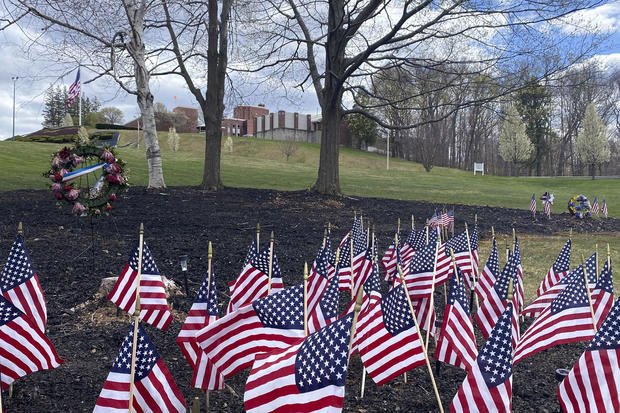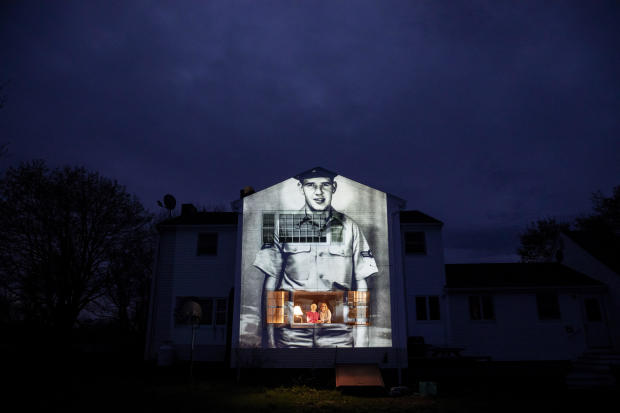 |
| Click to Watch Video |
CBS Boston reports that staff called the move "total pandemonium" and "a nightmare."
A recreational therapist said she felt like she was "walking (the veterans) to their death," while a social worker "felt it was like moving the concentration camp – we were moving these unknowing veterans off to die."
When a social worker raised concerns about the move, the chief nursing officer said "it didn't matter because (the veterans) were all exposed anyway and there was not enough staff to cover both units," the report said. A nurse said the packed dementia unit looked "like a battlefield tent where the cots are all next to each other."
A healthcare administrator sent in three days later said it looked like "a war zone" and some veterans were unclothed and "some obviously in the process of dying from COVID-19."
As the virus took hold, leadership shifted from trying to prevent its spread, "to preparing for the deaths of scores of residents," the report said. On the day the veterans were moved, more than a dozen additional body bags were sent to the combined dementia unit, investigators said. The next day, a refrigerated truck to hold bodies that wouldn't fit in the home's morgue arrived, the report said.
Since March 1, 76 veterans who contracted COVID-19 at the home have died, officials said. Another 84 veterans and more than 80 staff have also tested positive.
The first veteran tested positive March 17. Even though he had been showing symptoms for weeks, staff "did nothing to isolate" him until his test came back positive, allowing him to remain with three roommates, wander the unit and spend time in a common room, investigators said.
An attorney for the superintendent, Bennett Walsh, said they dispute many of the investigation's findings and are "disappointed that the report contains many baseless accusations that are immaterial to the issues under consideration." The lawyer said in an emailed statement that "Walsh reached out for help when the crisis erupted" and sought National Guard assistance.
"The failure of the Commonwealth to affirmatively respond to that request contributed to many of the problems outlined in the report," the attorney, William Bennett, said.
Walsh was placed on administrative leave March 30 and the CEO of Western Massachusetts Hospital, Val Liptak, took over operations.
Susan Kenney, whose 78-year-old father Charles Lowell died in April after contracting the virus at the home, said she was horrified as she read details about veterans being denied basic care.
The Air Force veteran would have been 79 Monday. Susan Kenney told the station that her his death "was preventable for sure."
The report said officials with the Department of Veterans Services were aware of Walsh's "shortcomings," but failed to do enough about it. The chief of staff for Secretary of Veterans' Services Francisco Urena told investigators they thought Walsh was "in over his head" and did not spend enough time at the home. But Urena allowed Walsh to remain in his job.
"I'm very sorry," Urena told WCVB-TV. "I tried my best."
Republican Gov. Charlie Baker, who hired former federal prosecutor Mark Pearlstein to conduct the investigation, called the details in the report "nothing short of gut-wrenching." Baker acknowledged that his administration did not properly oversee Holyoke or the home's superintendent.
"The loss of life is difficult to even think or speak about. The events that took place at the Holyoke Soldiers' Home in March are truly horrific and tragic," Baker told reporters at a news conference.
Massachusetts Attorney General Maura Healey is also investigating to determine if legal action is warranted, she said. And the U.S. attorney's office in Massachusetts and Department of Justice's Civil Rights Division are looking into whether the home violated residents' rights by failing to provide them proper medical care.
Full Article & Source:
Scathing report details "baffling" errors at veterans home where 76 have died during virus outbreak



No comments:
Post a Comment